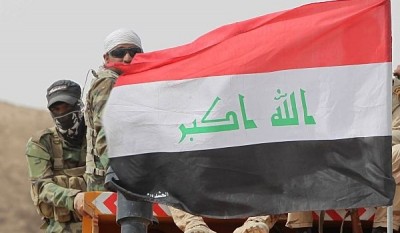Exaggerated Victories: The Mosul Effect

The need to tick off the tactical and strategic boxes in the interminable war against Islamic State is so pressing it acquires the quality of ham acting, where generals and leaders become thespians of exaggerated promise before the camera.
Nothing typified this more than the euphoric statements outlined by the Iraqi leadership in the aftermath of its efforts to retake Mosul after nine months of fighting. Prime Minister Haider al-Abadi was almost shrill in declaring victory on Monday, making the all too optimistic assertion that the Caliphate was dead, that terrorism had been quashed.
What Islamic State did do was represent a tailored common enemy, a convenient point of unity that kept Iraq’s traditionally murderous sectarianism at bay. The faux Caliphate, in many ways, supplied a temporary necessity, a cloak of consensus.
It kept the Sunni-Shia divide in check, though it never resolved it. Gains made by ISIS in 2014 came more easily largely given the Sunni-majority population’s feeling of neglect in the post-invasion era. But it went deeper, given the more dominant Shia presence in Baghdad.
Now, the Kurdish forces stand out as a force to be reckoned with, a situation that Baghdad will find hard to avoid. A Kurdish independence referendum is also slated for September. As if these niggling points were not enough, oil revenue, and its disputed regime of distribution, plays a part.
Much scepticism should be shovelled onto triumphalism, and notions of a noble battle waged by the forces of light against those of pure darkness obscure the pattern of crimes committed by a number of forces.
At issue here are the instrumental methods used in battle. Iraqi forces and members of the coalition deployed, to considerable extent, Improvised Rocket Assisted Munitions in densely populated civilian areas. Air strikes were also used.
In the words of an Amnesty International report released on Tuesday,
“Even in attacks that seem to have struck their intended military target, the use of unsuitable weapons or failure to take other necessary precautions resulted in needless loss of civilian lives and in some cases appears to have constituted disproportionate attacks.”
The Islamic State forces made happy use of civilians, and also restricted civilian movement, condemning the effectiveness of any leaflet drops warning of imminent attacks. This, in addition to their more traditional methods of brutality inflicted on the populace.
A cosmopolitan town has also been emptied – some 897,000 people have been displaced, a point that puts it at risk of de-Sunnification. The city that will spring up from the rubble is bound to look different from that which preceded its seizure by Islamic State, one less colourful, and in all likelihood less pluralistic.
Much of this will depend on the calculus of retribution that tends to take effect in the aftermath of such victories. In the sectarian, religious game, scores are always settled, while the law is kept taped and muzzled. Mosul risks becoming yet another powder keg of resentment dotting Iraq’s devastated landscape.
It also risks becoming another example of reconstruction failure. (Ramadi and Falluja remain pictures of post-ISIS devastation.) The rebuilding phase, if history is an example to go on, risks falling into a quagmire of faulty finance, economic woe, corruption and security. And there is much reconstruction to take place, with three-quarters of the city’s roads destroyed, most of its bridges and 65 percent of its electrical infrastructure.
Money supplied is often money denied, with special political interests sucking the available funds before they can go into tangible efforts at reconstruction. The more one looks at the agenda to rebuild, the more one is struck by the fact that government institutions remain the problem.
“We need a lot of money,” claimed a glum Emad al-Rashidi, advisor to the governor of Nineveh province, “and we don’t get much help from the world, because the money is stolen by policymakers that pretend they are rebuilding Mosul.”[1]
The begging bowl, as a matter of fact, is a big one. It is being passed around even as the city smoulders. A plethora of partners and agencies are involved, giving it the impression of an industry in need of oiling. The UNHCR, for instance, has demanded $126 million in funding to perform its necessary work.
The Special Inspector general for Iraq Reconstruction has claimed that the $60 billion in US funds spent over 10 years has produced little, while the Iraqi government’s own effort over $138 billion fared little better.[2] Such efforts, ruinously delayed, will provide sweet music for the next militant upsurge.
Dr. Binoy Kampmark was a Commonwealth Scholar at Selwyn College, Cambridge. He lectures at RMIT University, Melbourne. Email: [email protected]
Notes
[1] https://www.theatlantic.com/international/archive/2017/07/mosul-iraq-abadi-isis-corruption/533067/
[2] https://www.theatlantic.com/international/archive/2017/07/mosul-iraq-abadi-isis-corruption/533067/

